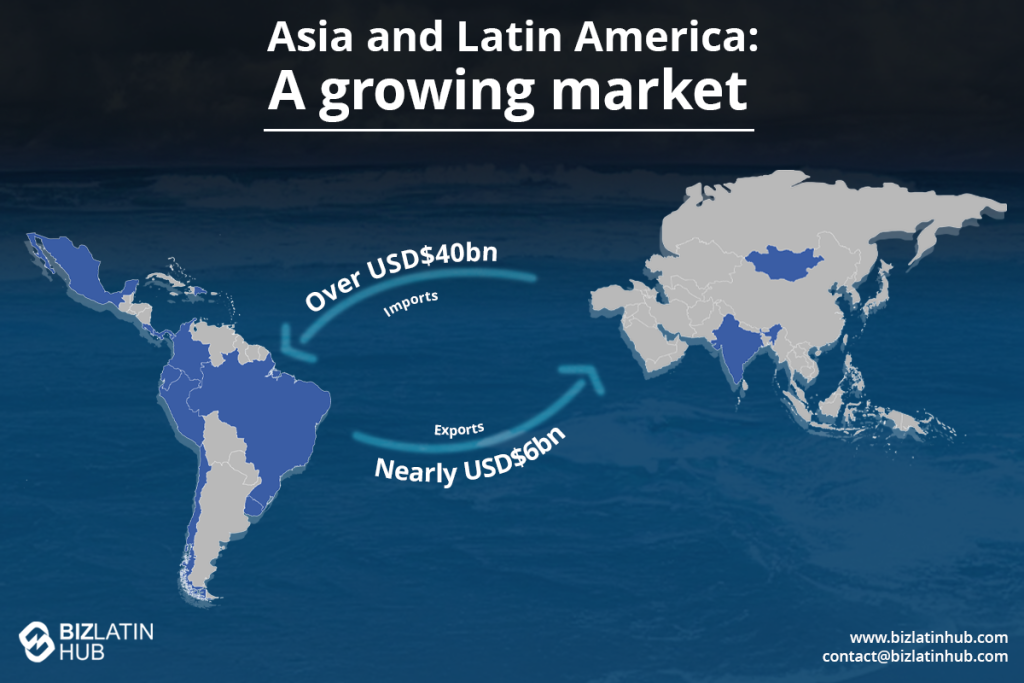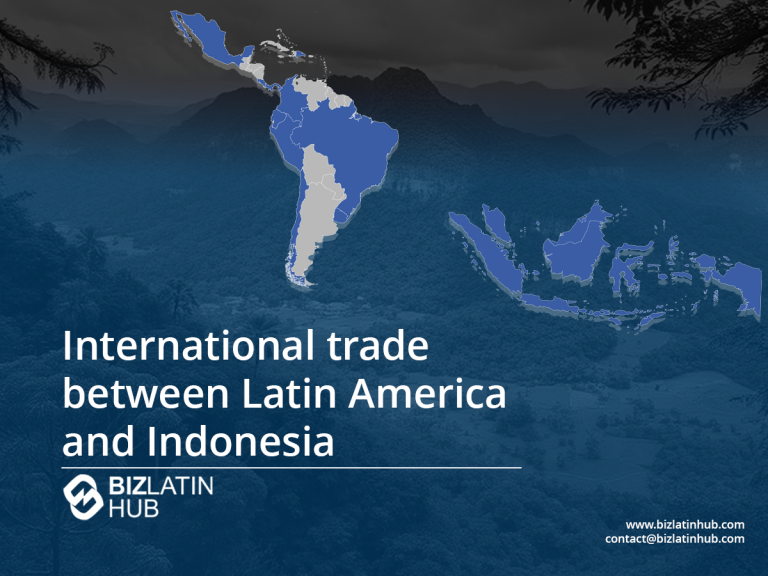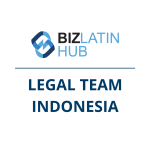Investors seeking to incorporate a company in Indonesia see it as a growing favorite amongst savvy entrepreneurs looking for an entry point into Asia. Indeed, the country has made real progress in reducing barriers to entry for foreign investors; international entrepreneurs are now able to purchase land and property. There are now many upsides to doing business in Indonesia.
What’s more, with a GDP of USD$1.016 trillion, Indonesia is home to one of the fastest-growing middle classes in the world. The economy is on the rise, and opportunities are available to businesses and investors considering overseas expansion. It’s recommended that you get ahead of the curve and incorporate a company in Indonesia as soon as possible before competition edges you out of the market.
Below, we’ve put together a brief guide on how to incorporate a company in Indonesia. We share some guidance on how to maximize your return on investment when trading in the country. Don’t forget, seeking local assistance is one of the best ways to ensure a smooth ride through this process.

Requirements to incorporate a company in Indonesia
The minimal share capital requirement for incorporating a company in Indonesia depends on the size and scope of your business, and whether it will be owned by Indonesian nationals or foreign shareholders.
Indonesian-based businesses can incorporate with a minimum share capital of between USD$3,500 and USD$35,000 for a local limited liability company. As a foreign entrepreneur, you’ll need a significant upfront investment to enter the market.
International investors must have an investment plan worth USD$1.2 million or more. You must deposit at least a quarter of that figure in the country as initial share capital. Whilst this may be offputting for investors, it’s possible to bypass the requirement by working with Indonesian-based entrepreneurs as a joint venture.
Alternatively, you can apply for an Indonesian visa or citizenship to incorporate as if you were a resident of the country. Appointing a nominee director is another way to reduce the barriers to entry when expanding in the country.
In order to open a company in the country, you’ll need a minimum of two shareholders, one resident director, and a commissioner, who can be from any nationality. It is recommended that you partner with a local entrepreneur or business to ensure you stay compliant throughout the process.
Assess demand

After deciding to incorporate a company in Indonesia, the next step is to determine the level of demand for your products and services. You can do this by speaking to local citizens, analyzing the performance of your competitors and the overall market, and conducting your own primary research and stress tests.
Use the information you’ve gathered in the market research phase to determine the success of your venture with Indonesian consumers. For due diligence, consider visiting Indonesia on a market research mission, and speaking with potential clients to secure contracts before you begin incorporation.
Choose your business entity type
Choosing the right entity type for your business will save you time and ensure that you can access the necessary benefits and tax relief when expanding across South Asia.
The Indonesian LLC (Perseroan Terbatas): This is the most common entity in the country, and most often used by locals. This entity requires one director and two Indonesian shareholders, as well as a commissioner that can be from overseas.
Penanaman Modal Asing (PMA): Companies either partly or wholly foreign owned are called PMAs, governed by the Foreign Capital Investment Law. Before they can incorporate and conduct activity in the country, such businesses must be approved by the Capital Investment Coordinating Board. PMAs must invest US$1.2 million in the country. 25% of this investment must be paid up as share capital when incorporating.
Representative Office: Foreign firms looking to gain a presence in Indonesia should consider a representative office. However, bear in mind that businesses are only able to conduct research and promotional activities, and cannot conduct revenue-generating activities. It’s important to note that Indonesia does not offer a Branch Office entity.
Public Company: As outlined in Indonesian Company Law, public companies must have at least 300 shareholders and IDR$3 billion in capital. Such companies will face strict regulations and must be listed on the PT Bursa Efek Indonesia stock exchange. Whilst foreign businesses are unlikely to become public companies overnight, it is good to know that PMAs can be converted to public companies with local investment.
How is the process to incorporate a company in Indonesia?
Once you have assessed the level of demand and chosen the most appropriate entity type for your business, you should obtain incorporation documents and register your company name with the Ministry of Law and Human Rights. Those documents must be notarized, and you’ll need to pay a registration fee. Once paid, you’ll receive a receipt to file with the Trade Register.

The next step is to apply for your business license in the country through the relevant authority for your niche and then register for employment with the Ministry of Manpower. Finally, you’ll be able to register for social security and obtain tax identification numbers (NPWP) for your business, and then open a corporate bank account.
Waiting for approval for your incorporation documents can take around 10 days; drafting your Articles of Association around 2-3 days; and obtaining a business and a permanent license, around 10-15 days. All in all, you should be able to progress to a fully-fledged registered business in around 1-2 months, provided you submit correct paperwork and work with a local business advisor who can help to speed up the process.
FAQs on how to incorporate a company in Indonesia
Yes, but there are restrictions. International investors must have an investment plan worth USD$1.2 million or more. You must deposit at least a quarter of that figure in the country as initial share capital. Whilst this may be offputting for investors, it’s possible to bypass the requirement by working with Indonesian-based entrepreneurs as a joint venture.
Alternatively, you can apply for an Indonesian visa or citizenship to incorporate as if you were a resident of the country. Appointing a nominee director is another way to reduce the barriers to entry when expanding in the country.
For non-residents, this will be the NPWP, which is a 16 digit unique number. Residents can also use this, or the NIK (National Single Identity number).
All in all, you should be able to progress to a fully-fledged registered business in around 1-2 months, provided you submit correct paperwork and work with a local business advisor who can help to speed up the process.
This is the most common entity in the country, and most often used by locals. This entity requires one director and two Indonesian shareholders, as well as a commissioner that can be from overseas. It is similar to an LLC in other jurisdictions.
Companies either partly or wholly foreign owned are called PMAs, governed by the Foreign Capital Investment Law. Before they can incorporate and conduct activity in the country, such businesses must be approved by the Capital Investment Coordinating Board.
PMAs must invest US$1.2 million in the country. 25% of this investment must be paid up as share capital when incorporating.
Both the Perseroan Terbatas and Penanaman Modal Asing structures offer limited liability, with the key difference between them being over nationality of ownership.
Biz Latin Hub can help you incorporate a company in Indonesia
Don’t let our name deceive you. Whilst we started by offering back-office secretarial services to businesses wishing to enter into Latin American markets like Mexico and Colombia, we’re now proud to support businesses across the Pacific Ocean in Asian markets.
Our diverse and growing team of local and expatriate professionals provide customized business solutions to countries entering a number of markets worldwide. That might involve learning how to incorporate a company in Indonesia or elsewhere in SE Asia.
To learn more about our company incorporation, recruitment, and commercial representation services, do not hesitate to contact us now and one of our Indonesian business experts will get back to you with a solution that can take your firm to new heights.





